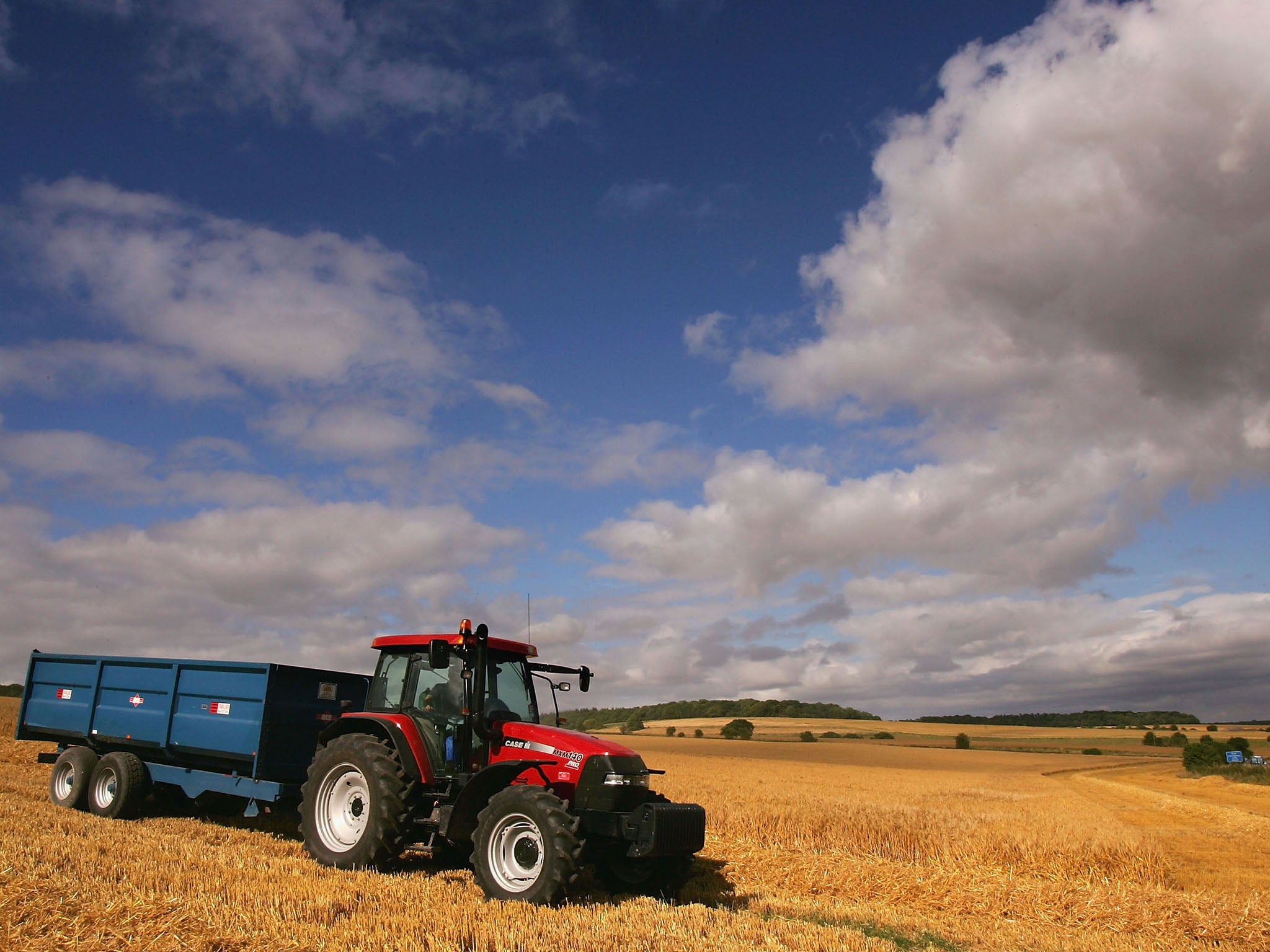British farming is some of the world’s best. Now we have a chance to showcase it
Getting agriculture right after Brexit means sticking to our high standards at home, and not letting in food that doesn’t meet them, writes Minette Batters


Your support helps us to tell the story
From reproductive rights to climate change to Big Tech, The Independent is on the ground when the story is developing. Whether it's investigating the financials of Elon Musk's pro-Trump PAC or producing our latest documentary, 'The A Word', which shines a light on the American women fighting for reproductive rights, we know how important it is to parse out the facts from the messaging.
At such a critical moment in US history, we need reporters on the ground. Your donation allows us to keep sending journalists to speak to both sides of the story.
The Independent is trusted by Americans across the entire political spectrum. And unlike many other quality news outlets, we choose not to lock Americans out of our reporting and analysis with paywalls. We believe quality journalism should be available to everyone, paid for by those who can afford it.
Your support makes all the difference.What food will you be feeding your family after Brexit? What will be filling your fridge in the future? The chances are you may not have even considered this.
For generations, shoppers up and down the country have had a guaranteed supply of food produced to some of the highest animal welfare, environmental and food safety standards in the world, all produced with care by British farmers.
I want that to continue because we have standards that should be shouted about across the world. Brexit offers us the opportunity to be a global leader in our food production and all it delivers – environmental protection, care for the countryside and climate-friendly food.
We have an opportunity to export more and to showcase our food system, one we are all rightly proud of, on a global stage. We should be capitalising on our domestic story of food traceability, safety and provenance with the intention of putting more British food on more global plates, while at the same time ensuring that our high-standard environmental delivery is echoed by all those future trading partners.
There is an enormous opportunity – but there is also a huge risk.
In order for British food and farming to achieve the opportunities promised by Brexit, we need the government to commit that they will not agree to trade deals that allow in food that would be illegal for our farmers to produce here.
If we have legal requirements for home-produced food, those requirements must also set the standards for all food imports too. If we set a high standard at home and then sign a deal waving in sub-standard food from the rest of the world, what message does that send out? What risks does that create, and what impact will it have on our own food producers?
We have been clear that the government needs to introduce a commission to scrutinise trade deals and make recommendations on future food trade policy. This is essential not just for the food we’ll feed our families, but for the way in which we’ll protect and enhance our environment and tackle climate change – one of the greatest issues of our time.
The global Britain I see is one that solidifies its place as a global leader in producing climate-friendly food and tackling climate change. We are already one of the first countries to legislate our net-zero commitment, and British farmers have taken this challenge head-on by setting our own goal to reach net-zero by 2040.
For generations, the land I farm in Wiltshire has been grazed by sheep and cattle, producing some of the most climate-friendly meat in the world from Britain’s extensive grasslands. And I am not alone growing and rearing climate-friendly food.
If Brexit is done right, the world-leading food we produce across the country on farms like mine can be exported across the world, showcasing what British farmers do best.
I believe the months ahead are critical not just for British farming, but for the nation. We must get Brexit right. To do that, we must capitalise on what we do well in this country. Our soils, our weather and our climate mean we can and must produce food for both home and abroad and make a viable return from the market.
A successful farming sector means a successful Britain not just in terms of the food on our plates but in the landscapes we walk, the health of our soils and rivers, and the positive impact we make on climate change.
That is why today, as we enter this new phase in our history and take our place on the world stage, I am calling on our prime minister to lead a government that truly backs British farming.
Minette Batters is the president of the National Farmers’ Union
Join our commenting forum
Join thought-provoking conversations, follow other Independent readers and see their replies
Comments